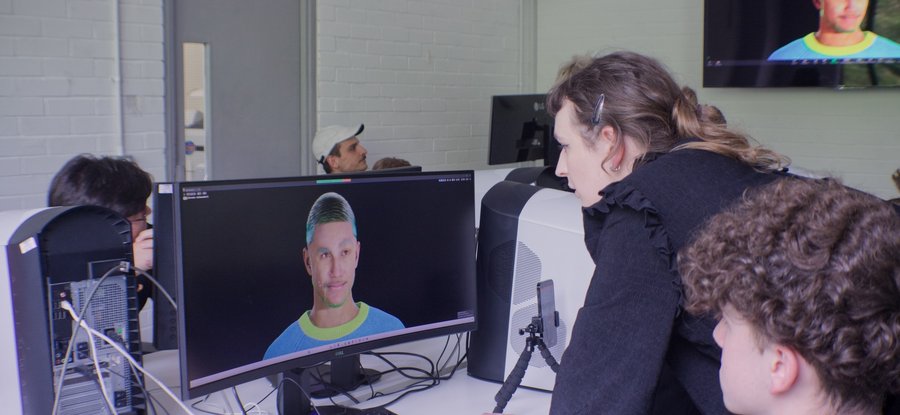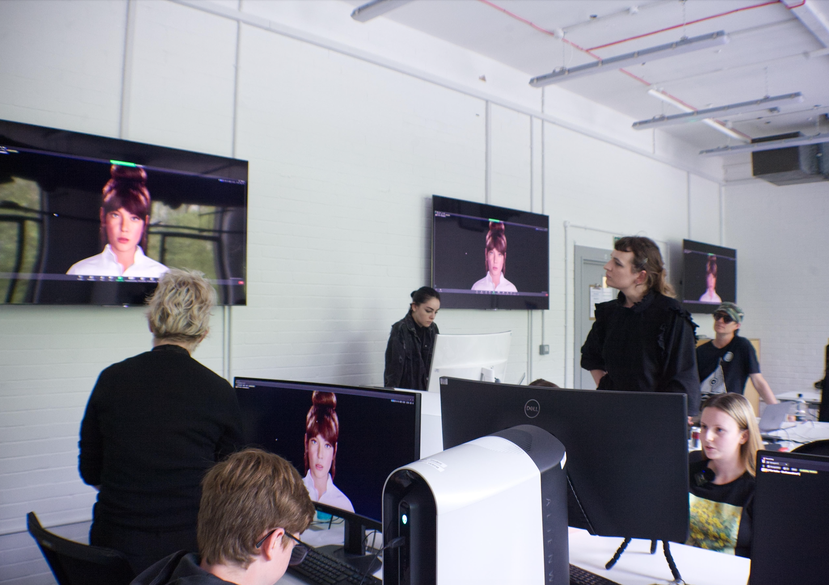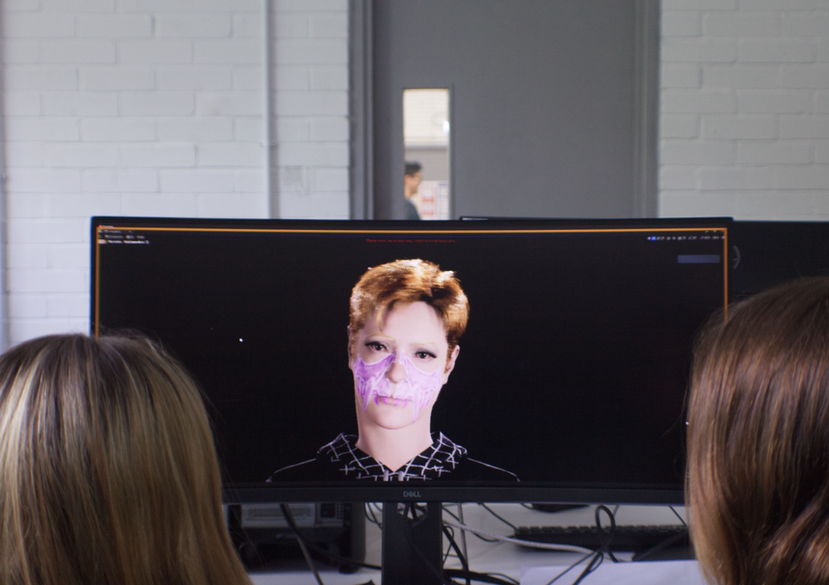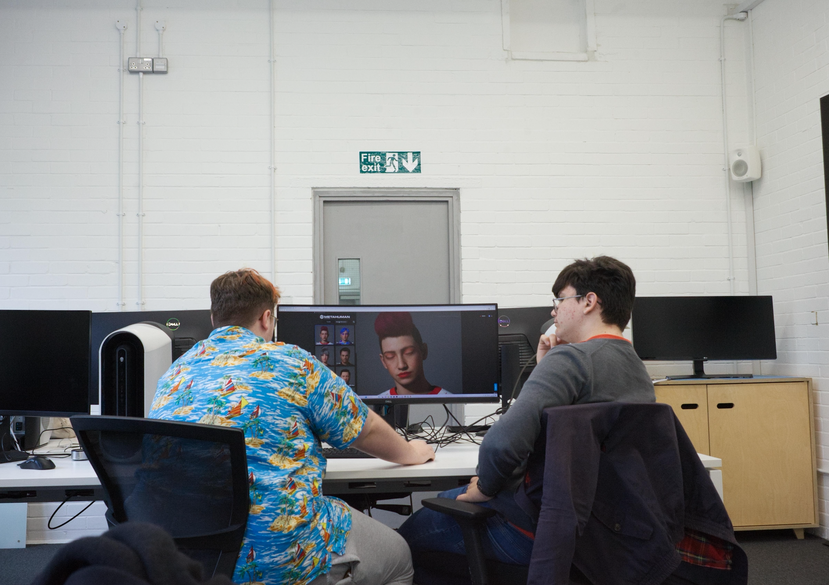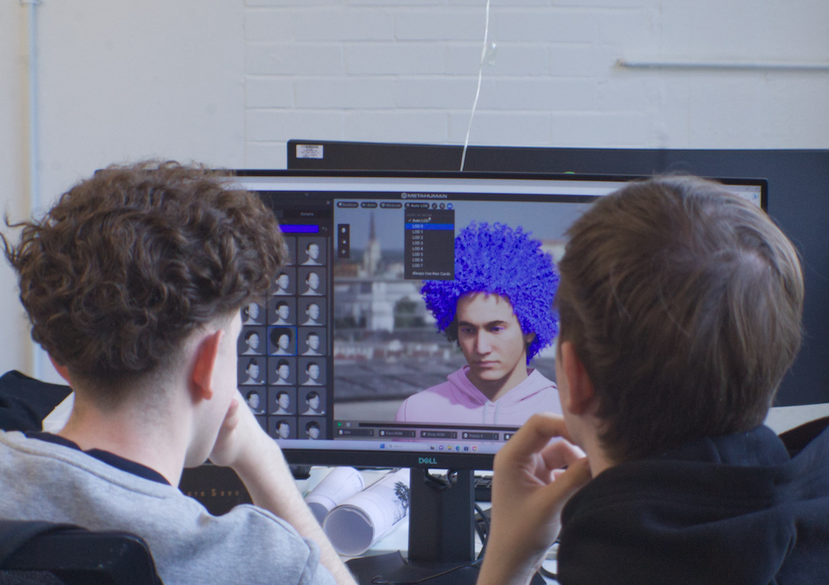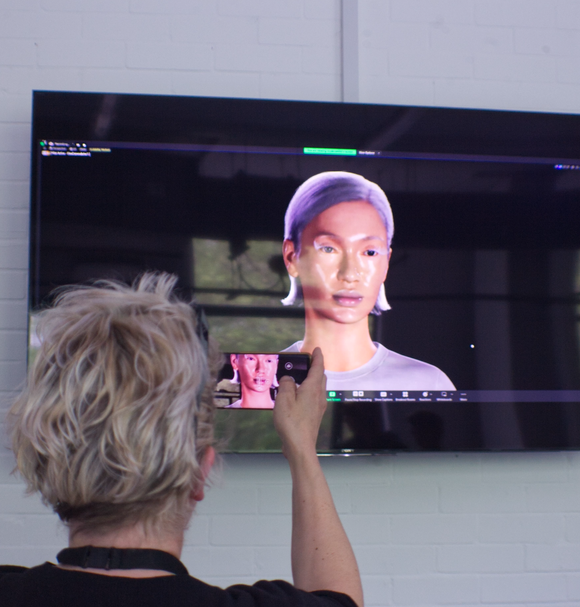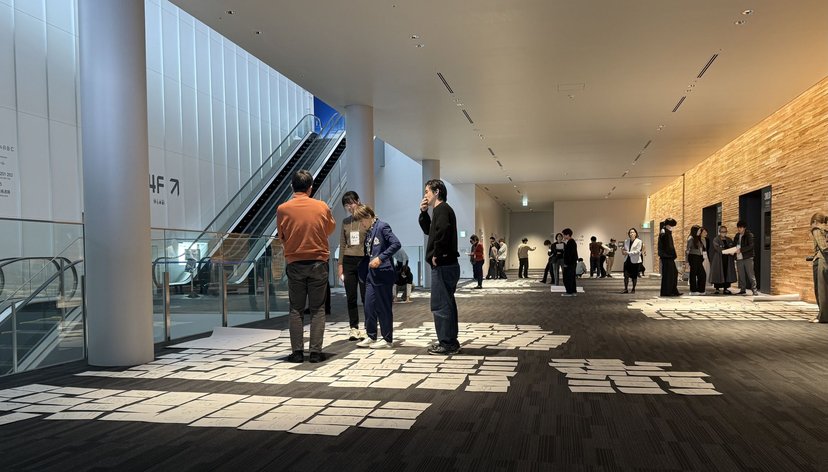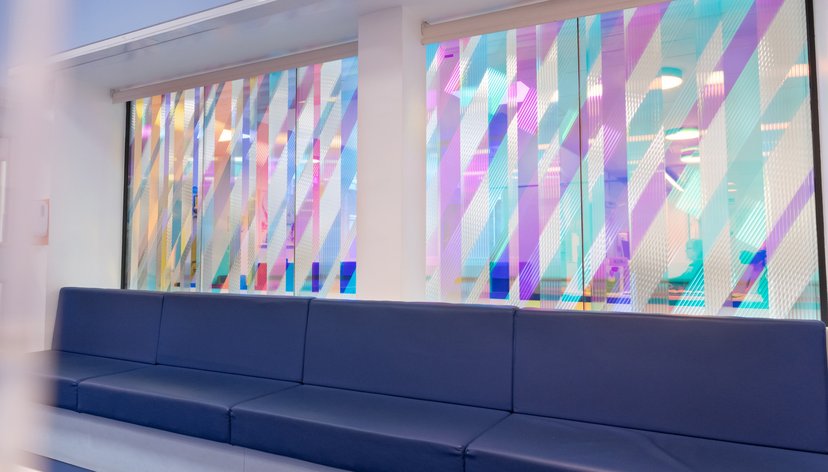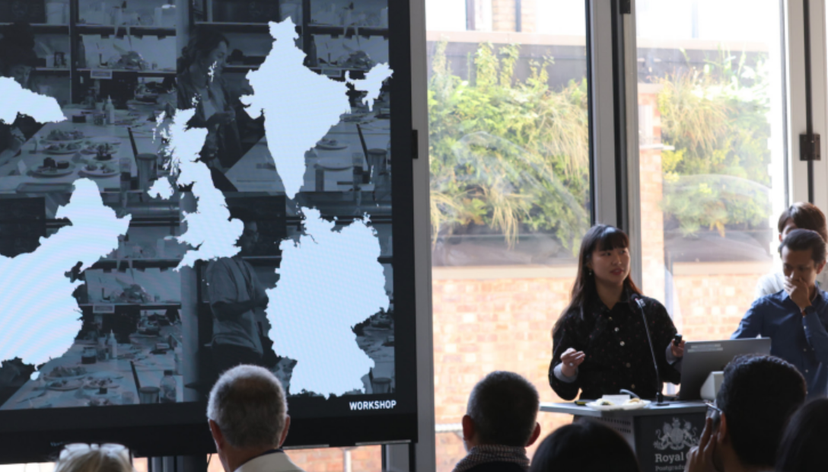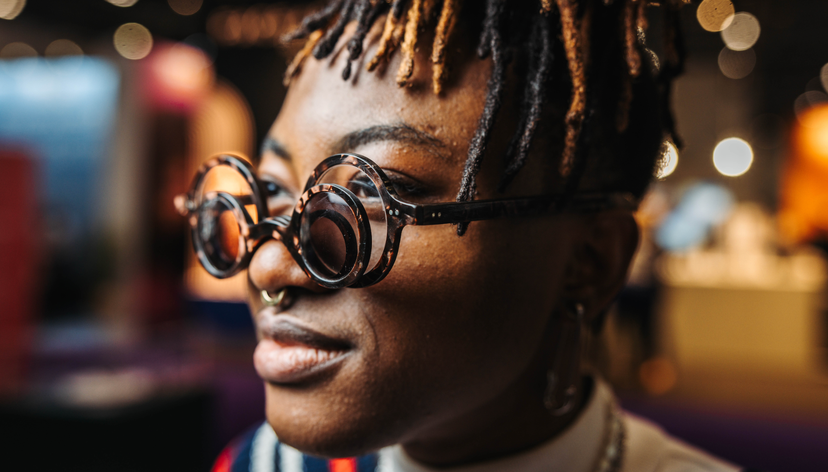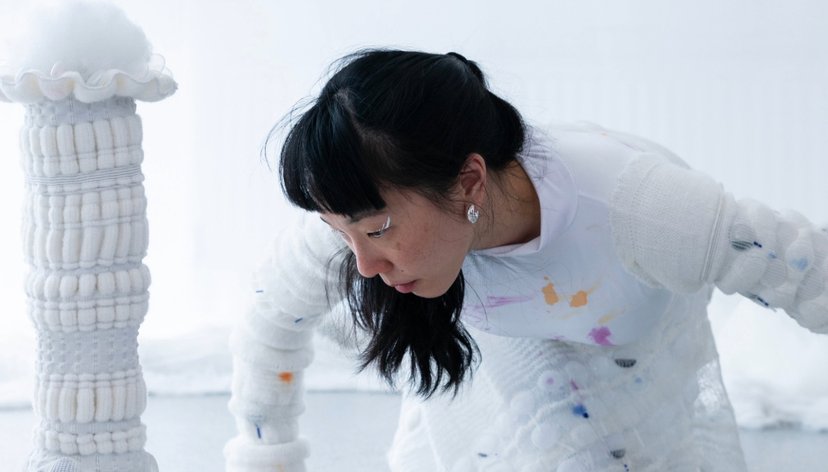
This MA Fashion research project explores digital identity in the Metaverse, engaging with RCA students and sixth form pupils from Oasis Academy, Isle of Sheppey.
At a glance
- In 2020, the Royal College of Art received funding from an Epic Games MegaGrant to explore digital identity in the Metaverse.
- Between 2021–22, a cohort of students from across the School of Design worked together to experiment with building new identities in the Metaverse using Epic’s Metahuman Creator software.
- The project asks timely, vital questions about the opportunities and dangers of entering this space.
- In 2023, our MA Fashion staff and alumni worked with sixth form pupils aged 16–18 years old from Oasis Academy, Isle of Sheppey to engage younger people with these same ideas and challenges.
- The outcome of the project is a series of Digital Human portraits – each with a personal narrative.
Key details
Gallery
More information
Aims of the project
Between 2021–23, a cohort of students from across the School of Design and from Oasis Academy, Isle of Sheppey, experimented with building new identities in the Metaverse using Epic’s Metahuman Creator software. The project asked timely, vital questions about the opportunities and dangers of stepping into this space:
- How do we become metahumans?
- What do we want to take with us into the Metaverse, and what do we want to leave behind?
- What is the effect on our physical identity of creating a new digital identity in the Metaverse?
- To what extent are our everyday identities of gender, race, sexuality, age and class reproduced in the Metaverse?
What is the Metaverse?
The Metaverse (from "meta-" and "universe") comes from Neal Stephenson’s 1992 science fiction novel Snow Crash and describes a persistent 3D virtual world enabled by software and a worldwide fibre-optic network, inhabited by avatars.
More recent advances in real-time technologies and broadband speeds have enabled real-time-interactive games like Epic’s Fortnite and Roblox, and there is a renewed interest in the development of open virtual worlds and our ability to inhabit them through our virtual selves.
What happened during the project?
Students from across the RCA's School of Design and from Oasis Academy Isle of Sheppey participated in several workshops discussing the context and provocations about a digitised human future. They were introduced to and played with the software, experimenting with creating new avatars and debating the results. What do they say? What does the voice sound like? The sixth-form students were mentored in the process by RCA MA Fashion alumni who had taken part in the initial RCA-only part of the project. Each participant created a digital portrait of their Meta Human – each with an accompanying personal narrative.
At its heart, the project is a storytelling vehicle.
RCA School of Design students
The students from across the RCA's School of Design who participated in the first phase of the project are: Seok-woo Choe, Sidan Ding, Lei Jiang, Lingsong Jin, Yuchen Li, Mingwei Liu, Linda Mutanga, Maria Nava, Ziheng Pan, Sebastian Roeck, Naomi Saka, Weilin Song, Zhekun Wang, Ye Xia and Qiaoye Zou.
What next?
The project team is working on the next phase. The plan is to create a workshop outline and a digital learning resource that can be easily delivered by other communities around the UK and internationally.
